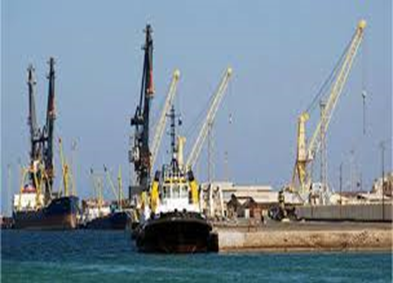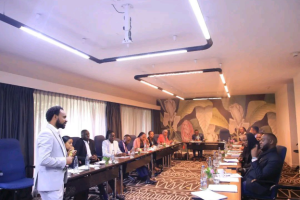
Ethiopia’s long-articulated quest for reliable access to the sea is reaching a critical juncture, demanding a timely and mutually beneficial resolution. Driven by a burgeoning economy and a rapidly expanding population, the need for efficient maritime routes has become increasingly pressing for the landlocked nation.
The Ethiopian government has consistently emphasized that its pursuit of sea access will be conducted peacefully and through mechanisms that ensure mutual benefit for all involved parties. This commitment underscores a desire for collaborative solutions that foster regional stability and economic integration.
Furthermore, Ethiopia’s intention to establish its own naval force should be viewed not as an act of aggression, but as a necessary step to safeguard its maritime interests and contribute to regional security. The Red Sea region has, at times, been plagued by piracy, and a capable Ethiopian navy would be well-positioned to protect its own assets and potentially play a role in pacifying the surrounding waters. This would be a supplementary contribution to the collective efforts aimed at maintaining maritime safety and security in a vital global trade artery.
Ethiopia’s quest for access to sea is legitimate and harmless
Unfortunately, some narratives have sought to mischaracterize Ethiopia’s legitimate aspirations as harmful. However, the reality is quite the opposite. Enhanced connectivity and trade facilitated by reliable sea access for Ethiopia would undoubtedly stimulate economic growth across the region, fostering greater interdependence and shared prosperity.
The notion that nations located thousands of kilometers away maintain military bases in the Red Sea region while denying Ethiopia, a country geographically proximate (less than 100 kilometers), access is illogical and inconsistent with international law.
The United Nations Convention on the Law of the Sea (UNCLOS) explicitly grants landlocked states the right to and from the sea, including freedom of transit through the territory of transit states. Ethiopia’s current reliance on the Port of Djibouti, while appreciated, is increasingly inadequate to meet the demands of its dynamic economic and population growth. Therefore, Ethiopia’s pursuit of diversified and sustainable sea access is firmly grounded in international legal frameworks and its inherent right as a landlocked nation.
According to Professor Biruk Hailu, a scholar of political science and international relations Ethiopia’s pursuit of maritime access is not intended to harm any nation but rather aims to foster mutual growth through collaboration.
Professor Biruk highlighted Ethiopia’s historical utilization of the ports of Aseb and Massawa for many years, spanning the Haile Selassie and Derg regimes.
He argued that Ethiopia possessed the right to claim these ports during Ethio-Eritrea war. However, he noted that the then-government’s lack of interest resulted in Ethiopia becoming a landlocked nation.
The scholar emphasized Ethiopia’s long-standing connection to the Red Sea, stating that there were very few periods in its history when it did not have access. While acknowledging the current lack of direct access, Professor Biruk stressed that Ethiopia remains deeply concerned about Red Sea issues.
He further explained that the Ethiopian populace has long desired maritime access, and the government’s pursuit of this claim has garnered significant public support.
Professor Biruk asserted that the seaport question remained unresolved not due to any inherent harm it posed to involved countries, but rather due to a lack of sincerity in addressing it. He believes that resolving this issue would facilitate joint growth, emphasizing that Ethiopia possesses resources to offer in return during negotiations.
He urged the government to resolutely pursue this objective through diplomatic channels.
Concluding his remarks, Professor Biruk stated that the pursuit of a seaport is an inevitable issue and called upon all stakeholders to fulfill their historical responsibility and leave a positive mark on this matter.
Moreover, in a determined push to overcome its landlocked status, the country is actively pursuing avenues for reliable sea access. The government is reportedly integrating this crucial objective into its broader national reform agenda, recognizing its significance for economic growth and regional influence.
Foreign Minister Gideon Timothy (PhD) recently announced significant international recognition of Ethiopia’s maritime affairs. The Minister’s remarks came during a review of the diplomatic sector’s performance over the past nine months, presented to Prime Minister Abiy Ahmed. The review encompassed the 100-day performance of the third quarter of the 2017 Ethiopian fiscal year and the broader nine-month macroeconomic implementation.
In his presentation, Minister Gideon highlighted several diplomatic successes in both bilateral and multilateral relations. These achievements include Ethiopia’s impactful participation in the BRICS forum, its successful hosting of the African Union Summit, and its election to the Peace and Security Council of the Union.
A key point emphasized by the Foreign Minister was the resolution of disputes with neighboring countries concerning ports and maritime issues through peaceful diplomatic channels. He stated that these efforts have significantly contributed to enhancing the international community’s acceptance of Ethiopia’s maritime interests.
Gideon further noted that ongoing reform efforts within Ethiopia are bolstering the nation’s capacity and influence on the global stage. He also underscored the extensive work undertaken to improve regional connectivity through energy infrastructure, demonstrating that Ethiopia’s economic growth extends beyond its borders and holds considerable potential for the wider region.
It is known that the country is negating with different stakeholders on the issue while specific details of on-going negotiations and strategies remain confidential, the unwavering commitment of the Ethiopian government to this long-standing issue is evident. The emphasis on diplomatic engagement and international cooperation signals a strategic approach aimed at achieving a sustainable and mutually agreeable solution that benefits both Ethiopia and the wider region.
Moving forward, a collaborative and forward-thinking approach is essential. Dialogue and negotiation, based on the principles of mutual respect and benefit, should guide the process of addressing Ethiopia’s crucial need for sea access. Such a resolution will not only unlock Ethiopia’s vast economic potential but also contribute significantly to the long-term stability and prosperity of the wider Horn of Africa region.
BY EYUEL KIFLU
THE ETHIOPIAN HERALD THURSDAY 17 APRIL 2025



